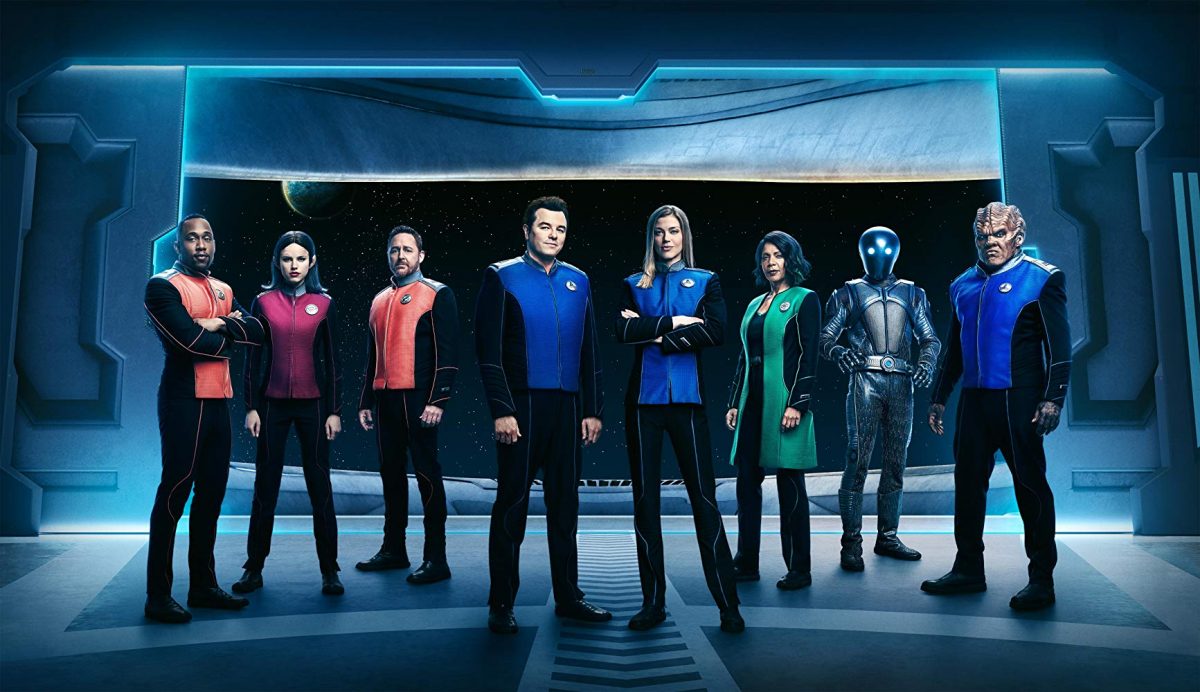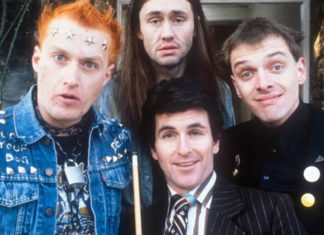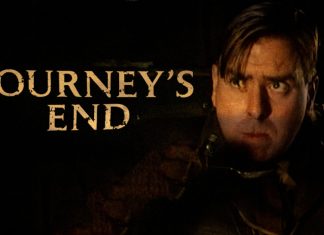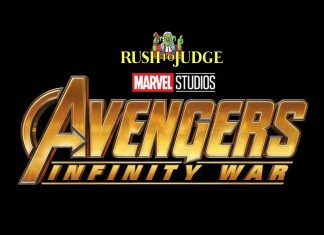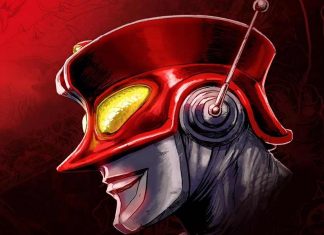Ah,The Orville. You know how when your kid takes a dump in the toilet for the first time and you act like they just won the Nobel Prize?
Anytime you overly praise your child for doing something very mundane, it’s because they are — for lack of a better word — handicapped by their youth and inexperience.
You obviously wouldn’t praise a 40 year old for going to the bathroom on their own.
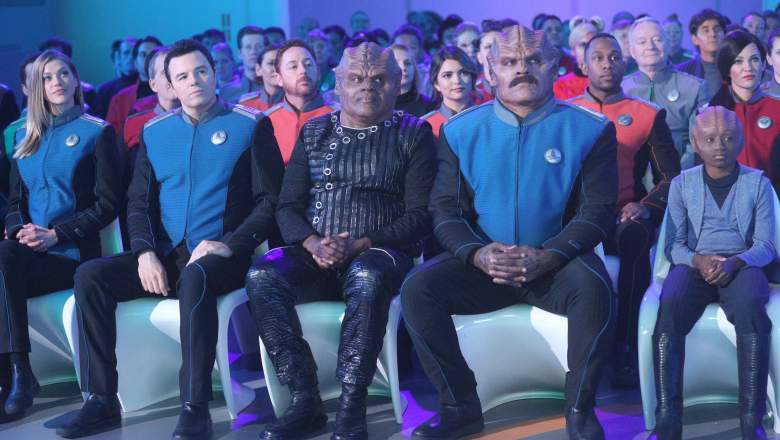
I feel that’s how the praise has been for The Orville. I’ve been grading on a curve. I give stuff a pass that I would never give Star Trek. Conversely, I tend to romanticize how good Star Trek was in its various iterations, sometimes forgetting the really bad episodes. (“Threshold”, anyone?)
So with all that in mind, I’m pleased to inform you that last week’s episode was good. Not good for an Orville episode or some other condition. It’s actually good!
I do wonder if they accidentally made it good. I’m not sure they realize the questions and ideas they are mining in this episode. I’m not ready to call this a trend. Insert stopped clock analogies here.
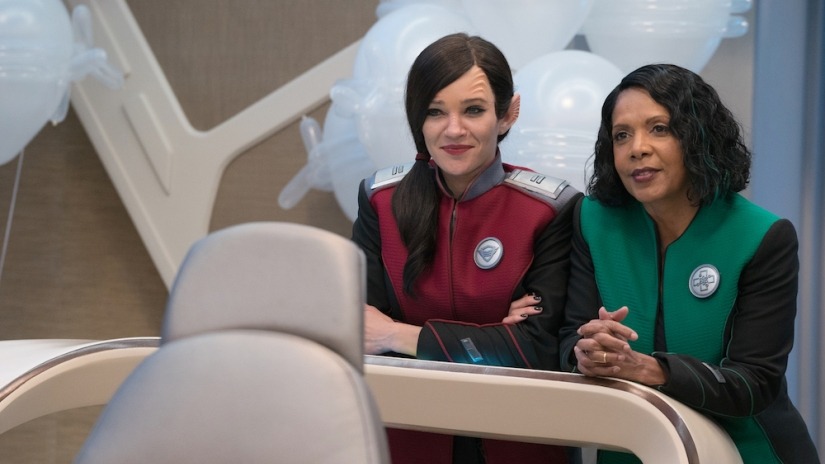
This is an episode that is not trying to make a giant sci-fi moment as it has been wont to do in the past. It is a simple character study with an even lighter B story.
And that’s a good thing.
To summarize, the doctor becomes romantically involved with Isaac. Isaac is a completely artificial life form and is not even built by humans. His motivations are by his programming and he does not experience emotion.
If you’re thinking about the old TNG episode “In Theory”, you’d be on the money.
But in this case, it’s done much better.
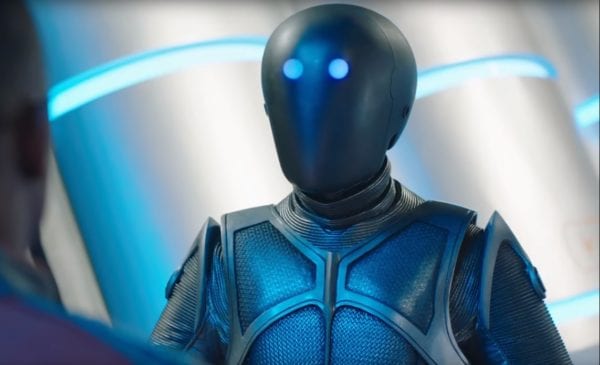
For one, it’s two main characters so there would be lasting repercussions. Second, the doctor seems to understand what she is getting into here. She knows and even questions the idea that Isaac is not capable of emotions as we know them and that this may be the same thing as falling in love with an appliance. Isaac for his part seems to be using this as a simple data gathering exercise, nothing more.
The relationship seems to not work out as he believes once they’ve slept together there is nothing further to be gained for his mission and breaks up with her. Hilariously, I might add. Seeing a robot in tighty-whiteys and a dirty wife beater spouting clichéd lines was too funny for words.
In TNG, the relationship was simply ended as both Data and guest star of the week both realized he was incapable of continuing the relationship. It was a reasonable outcome to the story but also had the effect of returning to the status quo, something TNG had to do a lot back in the day.
In The Orville, Isaac finds that once the doctor is not in his life anymore, something that has been quietly building since last season when he helped her sons after a shuttle crash landing, he has issues. He makes an error, something he didn’t think he was capable of.
What they did right was not to give Isaac some spontaneous emotions. He simply realizes he cannot function adequately without the subroutines that the presence of the doctor has had in his life. As she puts it “Are you saying you’re better with me than without me?” to which he agrees. But it is not an emotional decision on his part, and she seems to understand this.
I found this idea fascinating on a metaphysical level.
What is desire? There are basic survival desires that are easy enough to understand but companionship desires?
Isaac certainly doesn’t procreate as we humans do and our emotion of love may be just a biological imperative to ensure we get together and have babies.
But what if you don’t have emotions? What fuels this desire?
Is it simply his desire to fulfill his ultimate program of gathering information on the biological lifeforms to decide whether or not to join the union?
Is it deeper?
Is it something he doesn’t understand but not on an emotional level?
Whether they are trying to or not, they are asking an interesting question: Is it possible for something to love without emotions? It somewhat reminds of what Blade Runner 2049 delved into with the simulated partner. But here, Isaac doesn’t even attempt to simulate emotion. He just tries hard with the doctor to understand her and she responds to that emotionally.
Is it real?
Maybe that is something they will go into deeper in future episodes.
The B story was mostly about Bortus growing a killer mustache and everyone reacting comically to it. It wasn’t a big deal and funny enough.
I’m really not certain that Seth McFarlane and his writers are this smart but I’m pleased to see it. My assumption is they will botch this later on.
If it was supposed to be an SJW preachfest on loving people no matter what they are —maybe some transgender politics — it didn’t come across that way. It’s not like TNG and DS9 didn’t delve into this kind of thing.
We’ll see if this continues. It certainly tried a lot harder than Discovery did with their “kill the mansplainer” episode.
Quick points: The holodeck allows you to appear differently. So Norm MacDonald got to appear as himself instead of a gelatinous blob and the actor who plays Isaac appears as Isaac if Isaac was human.
It was a nice touch.

